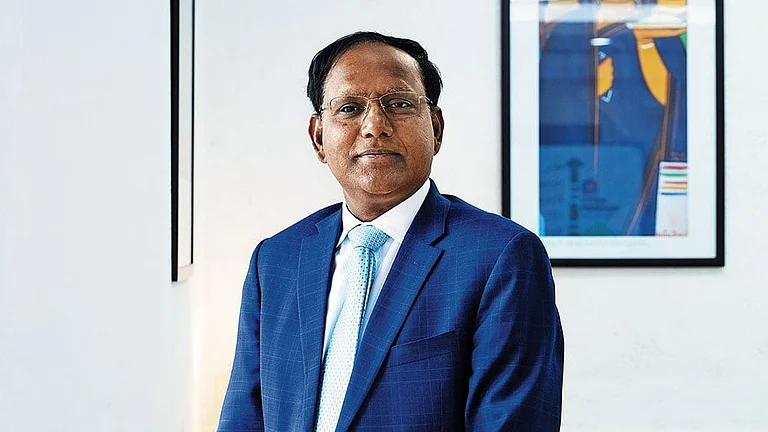Most people fail to prioritise accumulating post-retirement corpus in their initial working years. For them, immediate lifestyle expenses or investing for buying a house, vehicle or children’s higher education accrues higher priority. Retirement investments are usually relegated for the later phase of their working lives. However, rising life expectancy, increasing healthcare costs and the absence of any social security for the old makes it imperative to accumulate a bigger post-retirement corpus.
Let’s take a look at some financial tips to enjoy stress-free golden years post retirement:
Don't Underestimate Post-Retirement Expenses
When it comes to retirement planning, one of the first misconceptions most people tend to believe is the steep reduction in daily expenses post retirement. Although expenses such as daily commuting, EMIs and children's education expenses usually reduce post-retirement, healthcare expenses can increase due to the higher propensity of getting diseases and injuries in the old age.
Factor in the inflation rate while creating your post-retirement corpus. Failure to do so will increase the possibility of exhausting the entire corpus in your lifetime. Moreover, as advances in health care can be expected to increase the average life expectancy in future, factor in higher life expectancy while estimating the size of your retirement corpus.
Begin Investing as Early as Possible
The more you delay investing for your retirement goals, the higher would be the chance of accumulating inadequate corpus and/or straining your finances for other financial goals in the later stages of your work life. On the other hand, starting your retirement investments in the earlier on would allow you to create a bigger retirement corpus with much smaller contributions.
For example, a thirty-year old can build a post-retirement corpus of Rs 1 crore within the next 30 years through a monthly SIP of just Rs 2,700 in equity mutual funds, assuming an annualized return of 12 per cent. Whereas for a forty five-year old, building the same corpus at the same rate of return over the next 15 years would require a monthly SIP investment of Rs 20,000.
Invest in Equities to Build Higher Retirement Corpus
Equity as an asset class outperforms both inflation and fixed income instruments by a wide margin over the long run. This makes equity the most suitable asset class for achieving long term financial goals like creating post-retirement corpus. Also continue to remain invested in equities in your post-retirement years to reduce the longevity risk i.e., the risk of outliving your retirement corpus due to longer than estimated life expectancy. Once you are near your retirement age, estimate your mandatory living expenses and financial goals maturing within seven years and redeem the amount from your post-retirement corpus for investing in fixed income instruments like bank FDs or short-term debt funds. Invest the rest of your retirement corpus in equity mutual funds for continued growth of your corpus.
Buy Adequate Health Insurance Cover
The employer-provided group health insurance policies cease to provide health cover after retirement. As the incidence of hospitalisation and diseases increases with advancing age, having adequate health insurance cover for your post-retirement life would reduce the risk of increased medical costs depleting your corpus. Hence, make sure you buy adequate health insurance cover, preferably at a younger age to incur lower premium charges and cover maximum possible diseases.
Maintain an Adequate Emergency Fund
Ideally, an adequate emergency fund should be able to cover unavoidable monthly expenses like utility bills, medical bills, grocery, insurance premiums, etc for at least six months. Continuing with the emergency fund in your retirement years will allow you to deal with unforeseen emergencies without redeeming the equity proportion of post-retirement corpus or other investments earmarked for other financial goals.
Park this fund in high yield savings accounts to allow instant withdrawals while ensuring the highest level of capital protection. Those comfortable with mobile and/or internet banking can also park their emergency fund in fixed deposits of scheduled banks offering higher interest rates.
Review your Retirement Portfolio at Periodical Intervals
Investing in mutual fund schemes with outstanding past performance does not necessarily guarantee continued out-performance in the future. Changes in fund management style and other market-related factors can lead past outperformers to remain laggards for a long period of time. Hence, compare the performance of mutual funds constituting your retirement portfolio with their peer funds and benchmark indices, at least once in a financial quarter. Redeem those that consistently underperform their peer fund and benchmark indices for 4 quarters and invest the proceeds in better performing funds.
The author is Senior Director, Paisabazaar.com
DISCLAIMER: Views expressed are the author's own, and Outlook Money does not necessarily subscribe to them. Outlook Money shall not be responsible for any damage caused to any person/organisation directly or indirectly.































